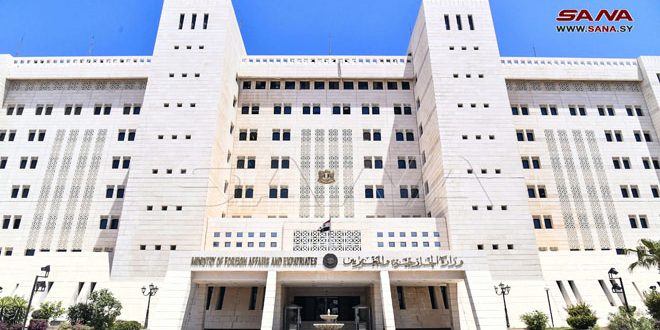On July 26th, the Assad regime responded to the objections raised by Canada and the Netherlands regarding the postponement of a session at the International Court of Justice (ICJ) to investigate Assad’s alleged crimes. The regime’s news agency, SANA, quoted a source from the Ministry of Foreign Affairs, denouncing the stance of Canada and the Netherlands and dismissing their objections as misleading.
The source accused both countries of propagating misinformation and lies through their campaign against Syria, emphasizing that their actions lacked credibility. The regime asserted that Canada and the Netherlands were unqualified and lacked the legitimacy to lecture on human rights matters, suggesting they should instead be concerned about the dark history of crimes during their colonial eras.
The International Court of Justice had decided to postpone the session, which was supposed to address the regime’s alleged crimes of torture in Syrian prisons. Canada and the Netherlands expressed regret over the court’s decision, which came at the request of the Assad regime. The original session date was set for July 19 but was rescheduled for three months later.
The legal action against the Syrian regime was initiated last June when the Netherlands and Canada jointly filed a case against it, focusing on the regime’s alleged involvement in torture and inhumane treatment in Syrian prisons. The case was based on the “Convention against Torture and Other Cruel, Inhuman or Degrading Treatment or Punishment,” adopted by the United Nations General Assembly in 1984, to which Syria is a signatory.
The allegations of the regime’s involvement in various human rights violations, including torture, killings, enforced disappearances, and chemical attacks since 2011, prompted legal action. While the regime initially agreed to negotiate the case in 2021, no further dialogue was announced.
The Syrian official source stated that the joint Canadian-Dutch statement is riddled with disinformation and falsehoods. Furthermore, the ongoing campaign against Syria launched by these nations lacks any credibility, as they have been actively involved in the aggression against Syria and have provided support to terrorist organizations responsible for horrific acts of violence.
Highlighting the historical context, the source pointed out that both Canada and the Netherlands have their own dark history stained with crimes committed during their colonial periods and against their indigenous populations.
Damascus usually responds to international actions against it through an unnamed source.
The Convention Against Torture, implemented in 1987 and signed by 150 countries, allows for arbitration between parties in disputes over its interpretation and implementation. If parties are unable to resolve the issue through negotiation within six months of the arbitration request, they may refer the dispute to the International Court of Justice.
This article was translated and edited by The Syrian Observer. The Syrian Observer has not verified the content of this story. Responsibility for the information and views set out in this article lies entirely with the author.


